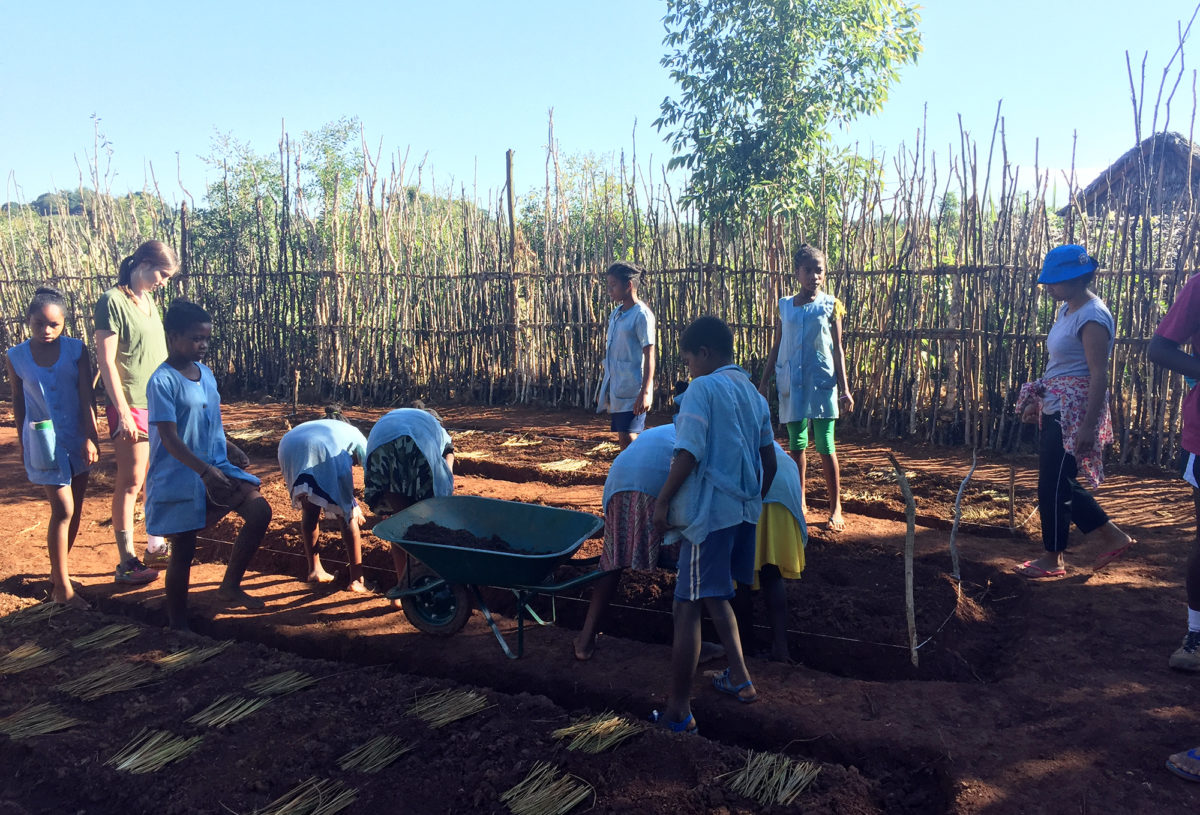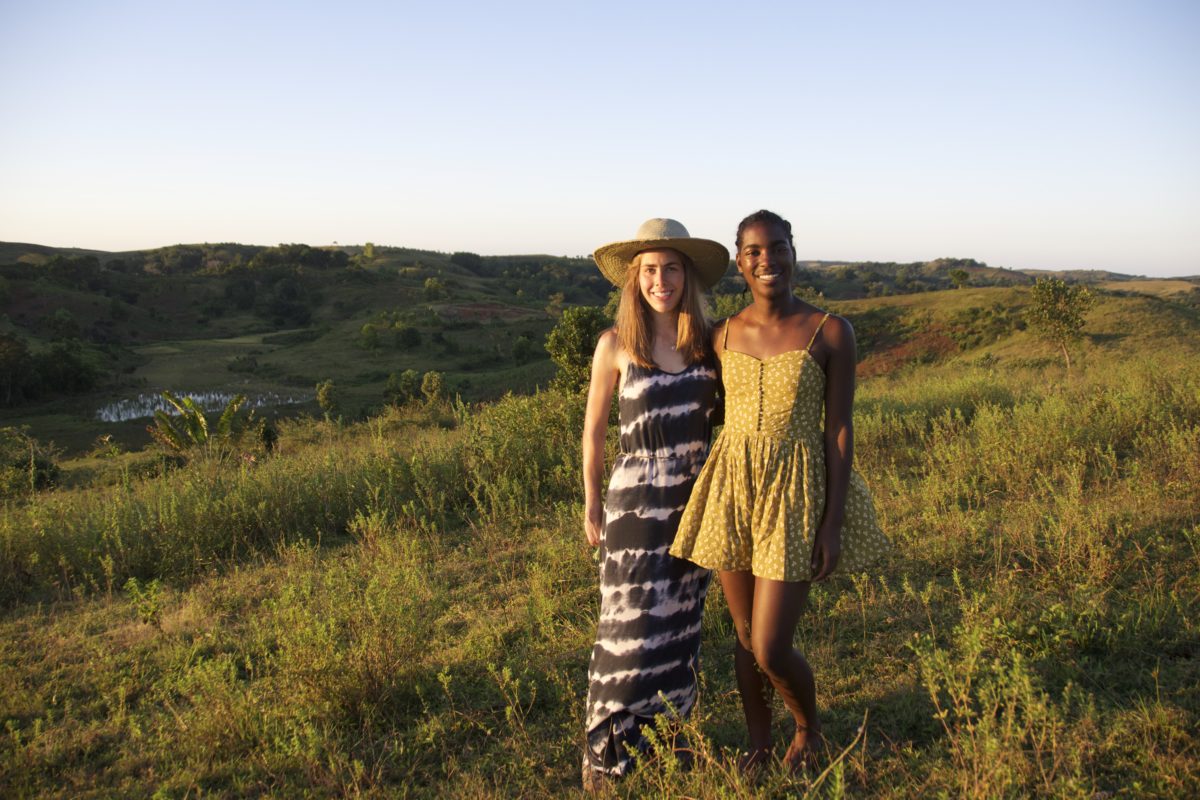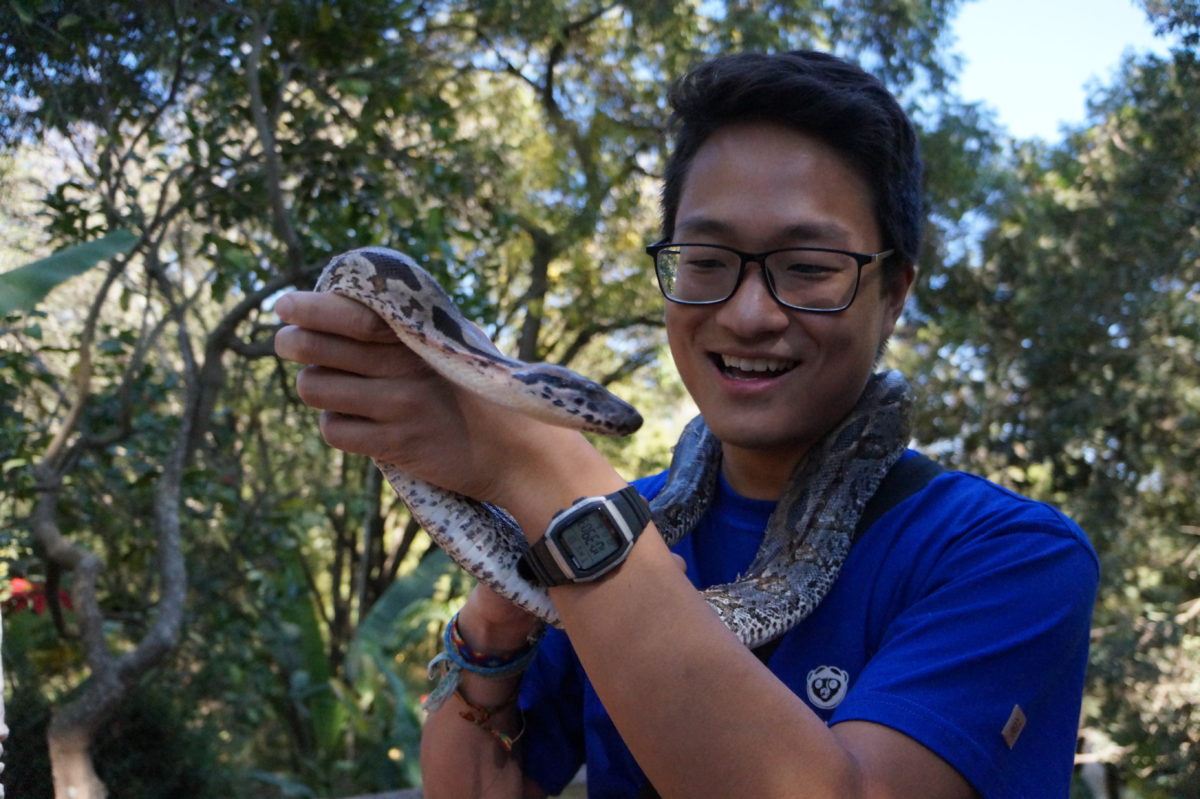CEL Introduces Madagascar Sustainability Initiative
- December 1, 2017
- By Guest Blogger
- 3 minute read

The Madagascar Sustainability Initiative, previously run through University College, is the most recent addition to the Center for Experiential Learning’s portfolio of offerings, in partnership with Missouri Botanical Gardens. We talked with recent Madagascar alumnus Joseph Park, BSBA ’19, about the course, how it aligned with his personal goals, and his takeaways from the experience.
What is the Madagascar Sustainability Initiative?
 It is both an academic and immersive course. Students spend a semester learning about the economic, political, and sustainability issues facing the country. Then, four- to five-person teams develop projects to address the problematic deforestation rate in the country and improve the lives of the people in Madagascar. At the end of the semester, students travel to the Mahabo village to implement projects, live with the native Malagasies, and explore the culture through activities like visiting the free market and going on a lemur walk.
It is both an academic and immersive course. Students spend a semester learning about the economic, political, and sustainability issues facing the country. Then, four- to five-person teams develop projects to address the problematic deforestation rate in the country and improve the lives of the people in Madagascar. At the end of the semester, students travel to the Mahabo village to implement projects, live with the native Malagasies, and explore the culture through activities like visiting the free market and going on a lemur walk.
What does the day-to-day work look like in Madagascar?
The trip to Madagascar is three weeks. Two weeks are spent implementing projects in the village of Mahabo, while the other week is spent traveling and sightseeing in Madagascar.
Joseph’s group introduced a method of converting animal droppings into charcoal, creating an alternative to wood for fires and beginning a system of waste management for animal owners. This work is a foundation for larger future projects that have the potential to significantly reduce wood usage in the country.
Projects vary. For example, other groups distributed feminine hygiene products to women and girls or revived a community garden.
The cultural immersion piece is truly what makes this class unique. “Not only do you study the issues facing the country, but you also actually experience it for yourself and have the opportunity to change people’s lives,” Joseph said.
 As a business student, Joseph says his goal is to use business for social impact, and the Madagascar class helped him to do so. He described the course as the “perfect opportunity to use the teamwork skills he learned in business classes to create positive change for people living on less than a dollar per day.” Beyond that, his experience taught him how non-profits can help impoverished areas, and he hopes to leverage this understanding to have a larger societal impact in the future.
As a business student, Joseph says his goal is to use business for social impact, and the Madagascar class helped him to do so. He described the course as the “perfect opportunity to use the teamwork skills he learned in business classes to create positive change for people living on less than a dollar per day.” Beyond that, his experience taught him how non-profits can help impoverished areas, and he hopes to leverage this understanding to have a larger societal impact in the future.
What would you say to students considering the Madagascar course?
“My advice would be to talk to as many people as you can who have done the program before, and try to understand their experiences as best as you can. That helped me a lot in grasping what exactly the Madagascar environment would be like, and I wish I had done that even more,” Joseph said. “For people on the fence about taking the class, I would say that every penny I spent going on this trip was worth it for me. It’s an experience unlike any other, and is something that is difficult to come by without a program like this. I even got quite a bit of financial assistance from both Student Financial Services and Study Abroad scholarships, so hopefully money isn’t such a large issue.”
We are excited to integrate Madagascar into our offerings at the CEL. The CEL is looking for passionate students who are intrigued to get involved. Please feel free to stop by Simon 100 if you would like to learn more or have any further questions.
Guest Blogger: Allison Halpern, BSBA ’18, CEL Marketing Student Associate
Contact Us
For assistance in finding faculty experts, please contact Washington University Public Affairs.
Monday–Friday, 8:30 to 5 p.m.
Sara Savat, Senior News Director, Business and Social Sciences
314-935-9615
sara.savat@wustl.edu
Kurt Greenbaum,
Communications Director
314-935-7196
kgreenbaum@wustl.edu
